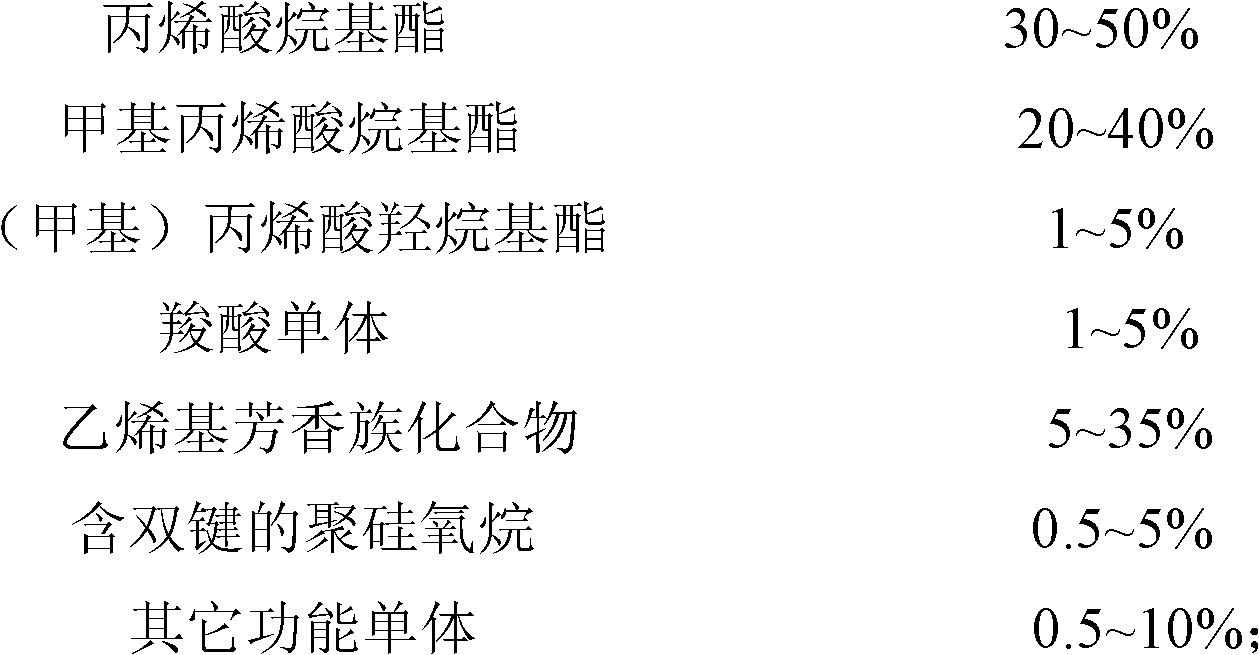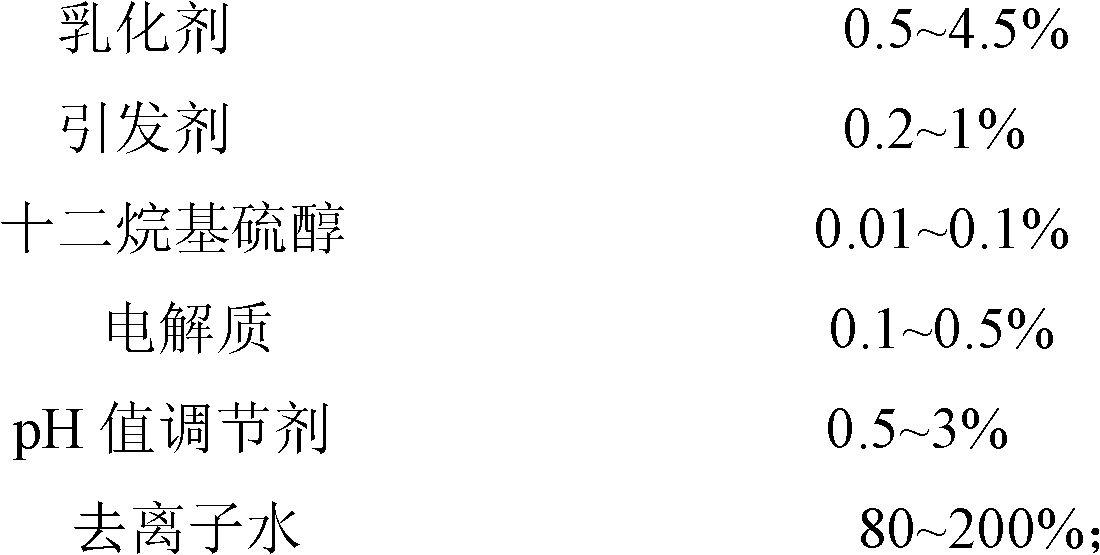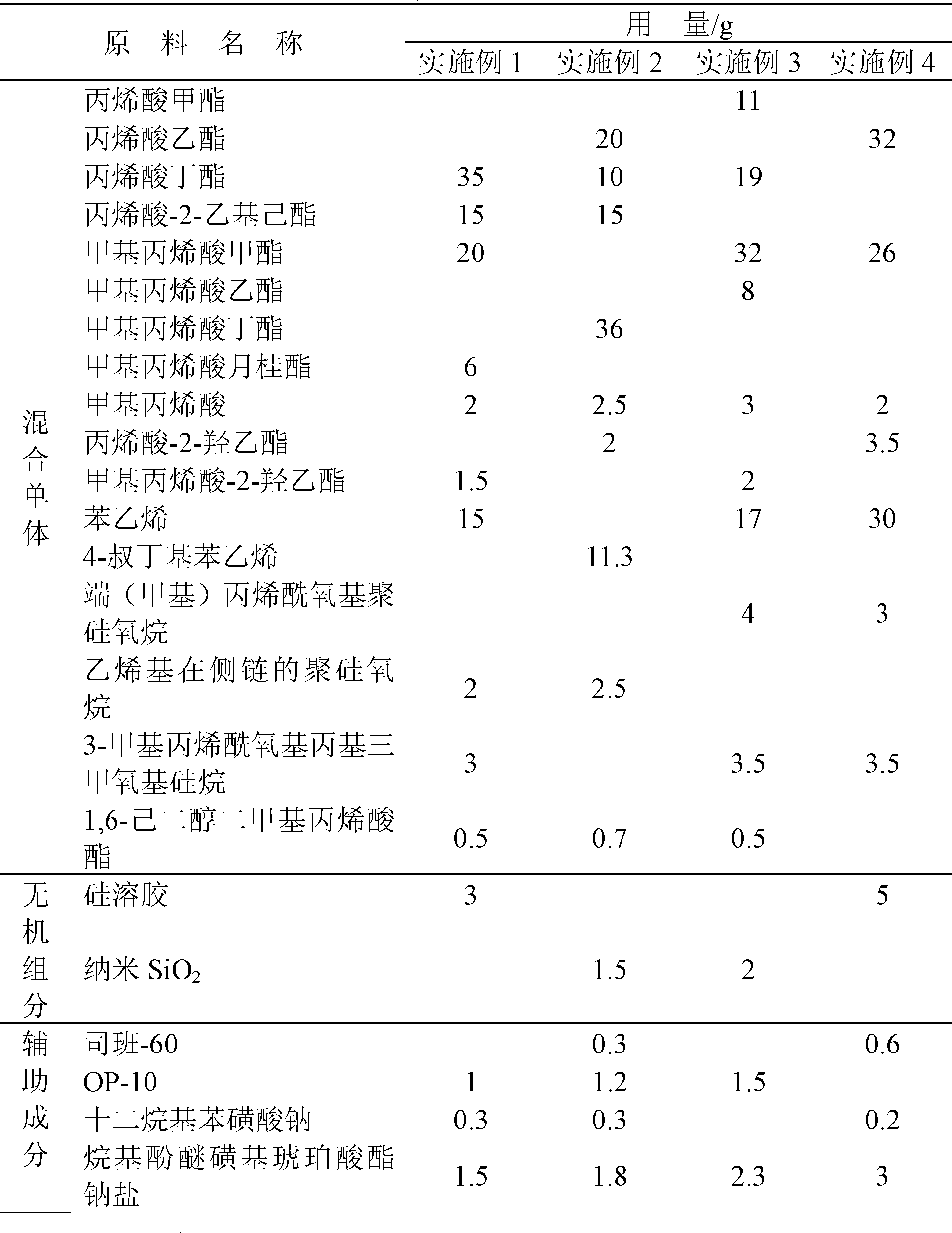Self-layering organic-inorganic nano composite emulsion and method for preparing same
A technology of inorganic nano-composite emulsion, applied in the direction of coating, etc., can solve the problems of paint film scratch resistance, poor flexibility and wear resistance, application fields that are difficult to meet high performance requirements, poor anti-adhesion, etc. , to achieve excellent slippery feeling, low viscosity and improved performance
- Summary
- Abstract
- Description
- Claims
- Application Information
AI Technical Summary
Problems solved by technology
Method used
Image
Examples
Embodiment 1
[0043] In seed emulsion polymerization, inorganic components are added during seed emulsion polymerization, and the specific steps are as follows:
[0044] ①Preparation of pre-emulsion: At room temperature, add 65% of the mass of the emulsifier, 30% of the mass of deionized water, mixed monomers and dodecyl mercaptan into the pre-emulsification kettle, and continue to stir at a stirring speed of 500 rpm 15min to obtain monomer pre-emulsion;
[0045] ②Preparation of seed emulsion: 35% of the mass of the emulsifier, 50% of the mass of deionized water, ammonium bicarbonate, and inorganic components were added to the polymerization kettle, mixed uniformly at a stirring speed of 300 rpm and heated up; when the temperature reached 60 °C , the constant stirring rate is 100rpm, add 10% of the mass of the monomer pre-emulsion; add the initiator solution composed of 33% of the mass of the initiator and 5% of the mass of deionized water, continue to heat up to 82 ± 1 ℃, keep warm 15min ...
Embodiment 2~4
[0051] The method of Example 1 was repeated with the content of each component specified in Table 1 below, and the test results were shown in Table 2.
[0052] Table 1
[0053]
[0054]
[0055] Table 2
[0056]
Embodiment 5
[0058] Seed emulsion polymerization, inorganic components are added during heat preservation, and the specific steps are as follows:
[0059] ①Preparation of pre-emulsion: At room temperature, add 54% of the mass of the emulsifier, 37% of the mass of deionized water, all mixed monomers and dodecyl mercaptan into the pre-emulsification kettle, and continue to stir at a rate of 500 rpm. Stir for 15min to obtain monomer pre-emulsion;
[0060] ②Preparation of seed emulsion: 46% of the mass of the emulsifier, 48% of the mass of deionized water, and ammonium bicarbonate were added to the polymerization kettle, mixed uniformly at a stirring rate of 300 rpm and heated up; when the temperature reached 60 °C, the constant stirring rate At 100 rpm, add 15% of the mass of the monomer pre-emulsion; add an initiator solution composed of 40% of the mass of the initiator and 2% of the mass of deionized water, continue to heat up to 82 ± 1 ° C, and keep the temperature for 15min to obtain the ...
PUM
 Login to View More
Login to View More Abstract
Description
Claims
Application Information
 Login to View More
Login to View More - R&D
- Intellectual Property
- Life Sciences
- Materials
- Tech Scout
- Unparalleled Data Quality
- Higher Quality Content
- 60% Fewer Hallucinations
Browse by: Latest US Patents, China's latest patents, Technical Efficacy Thesaurus, Application Domain, Technology Topic, Popular Technical Reports.
© 2025 PatSnap. All rights reserved.Legal|Privacy policy|Modern Slavery Act Transparency Statement|Sitemap|About US| Contact US: help@patsnap.com



